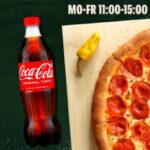John Candy remains one of Canada’s most beloved and funniest character actors. Synonymous with big-hearted, often bumbling, but always lovable characters, Candy cemented his place in comedic history through iconic roles in films like Uncle Buck and Planes, Trains and Automobiles. His career, though marked by highs and lows, consistently showcased his remarkable talent and enduring appeal. This article delves into the comprehensive John Candy Filmography, highlighting the breadth and depth of his work and celebrating his lasting contribution to cinema.
Born in Newmarket, Ontario in 1950, John Franklin Candy discovered his passion for acting in community college. His journey began with television appearances, debuting in a 1971 episode of Police Surgeon. He secured minor roles in Canadian TV shows and smaller films such as Tunnelvision and Find the Lady. However, his breakthrough arrived at 27 when he joined the Toronto branch of the famed “Second City” comedy troupe. Alongside future comedy stars like Catherine O’Hara, Eugene Levy, Rick Moranis, and Harold Ramis, Candy honed his comedic skills and gained recognition for his quirky humor and spot-on impersonations on the television show Second City Television (SCTV).
Image: A promotional still from Second City Television featuring John Candy in character, highlighting his early comedic work and the show that launched his career.
Following his television success, Candy ventured into Hollywood, initially with a role in Steven Spielberg’s 1941. While the film wasn’t a critical success, it opened doors for Candy, leading to a part alongside Dan Aykroyd in the cult classic The Blues Brothers. In this 1980 film, Candy portrayed a parole officer involved in the pursuit of Jake and Elwood Blues, further establishing his presence in mainstream cinema.
His comedic momentum continued to build with Stripes in 1981, where he played the memorable, endearingly inept recruit “Ox.” This role solidified his ability to portray lovable, larger-than-life characters. Around this time, Candy also returned to his Second City roots, participating in SCTV Network 90, and even hosted Saturday Night Live, showcasing his versatility and growing stardom. A significant turning point in his career arrived with Ron Howard’s romantic comedy Splash (1984). Playing the womanizing brother to Tom Hanks’ character, Candy’s performance was widely considered a breakout role, contributing significantly to the film’s immense success.
Image: A scene from Splash featuring John Candy and Tom Hanks, emphasizing Candy’s role in the hit romantic comedy that elevated his profile in Hollywood.
The mid-1980s saw Candy consistently delivering comedic performances in films like Brewster’s Millions (1985) and Armed and Dangerous (1986). However, 1987 proved to be an exceptionally pivotal year in his John Candy filmography, gifting audiences with two of his most iconic roles. He portrayed Barf the Mawg in Mel Brooks’s hilarious Spaceballs, and more notably, the unforgettable, talkative salesman Del Griffith opposite Steve Martin in John Hughes’s Planes, Trains & Automobiles. Planes, Trains & Automobiles is widely regarded as a comedy classic and stands as one of Candy’s finest performances, showcasing his ability to blend humor with genuine heart. He continued his successful streak with The Great Outdoors (1988), again alongside Dan Aykroyd, and then delivered another classic character in Uncle Buck (1989), playing the bumbling but ultimately caring uncle tasked with looking after his brother’s children. Uncle Buck further cemented his reputation for playing lovable, flawed characters that resonated with audiences.
Image: The movie poster for Uncle Buck, featuring John Candy prominently, highlighting one of his most iconic and commercially successful roles.
While he appeared in the blockbuster Home Alone (1990), the early 1990s marked a period of less successful film choices for Candy. Seeking to diversify his roles, he transitioned towards more serious parts, beginning with his portrayal of the corrupt lawyer Dean Andrews in Oliver Stone’s JFK (1991). This critically acclaimed film demonstrated Candy’s range as an actor. He followed this with the heartwarming and popular Cool Runnings (1993), based on the true story of the Jamaican bobsled team, showcasing his ability to blend comedy with inspirational storytelling.
Throughout his career, John Candy was known for his imposing physical presence, standing at six feet two inches and weighing around 300 pounds. Despite his jovial on-screen persona, he was reportedly sensitive about his weight and made efforts to improve his health in the 1990s due to a family history of heart disease.
In the mid-1990s, Candy filmed Canadian Bacon (1995), a satirical comedy directed by Michael Moore. Tragically, while filming Wagons East! (1994) in Mexico, John Candy suffered a fatal heart attack in March 1994. Canadian Bacon was released posthumously, marking his final film appearance.
John Candy’s legacy is defined by his memorable performances in films like Splash, The Great Outdoors, Stripes, and Uncle Buck. His contributions to comedy cinema are undeniable, and his John Candy filmography remains a testament to his exceptional talent and enduring appeal. He is remembered not only for his comedic brilliance but also for his warmth and humanity, qualities that shone through in every role he played, securing his place as a true comedy legend.


